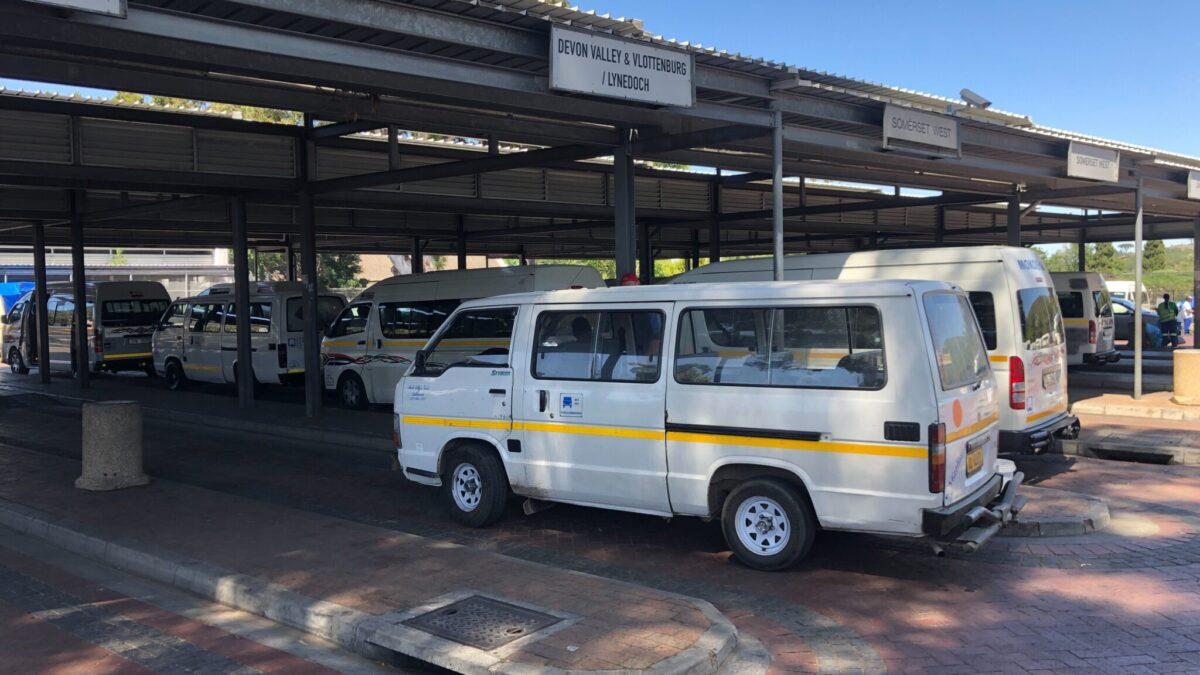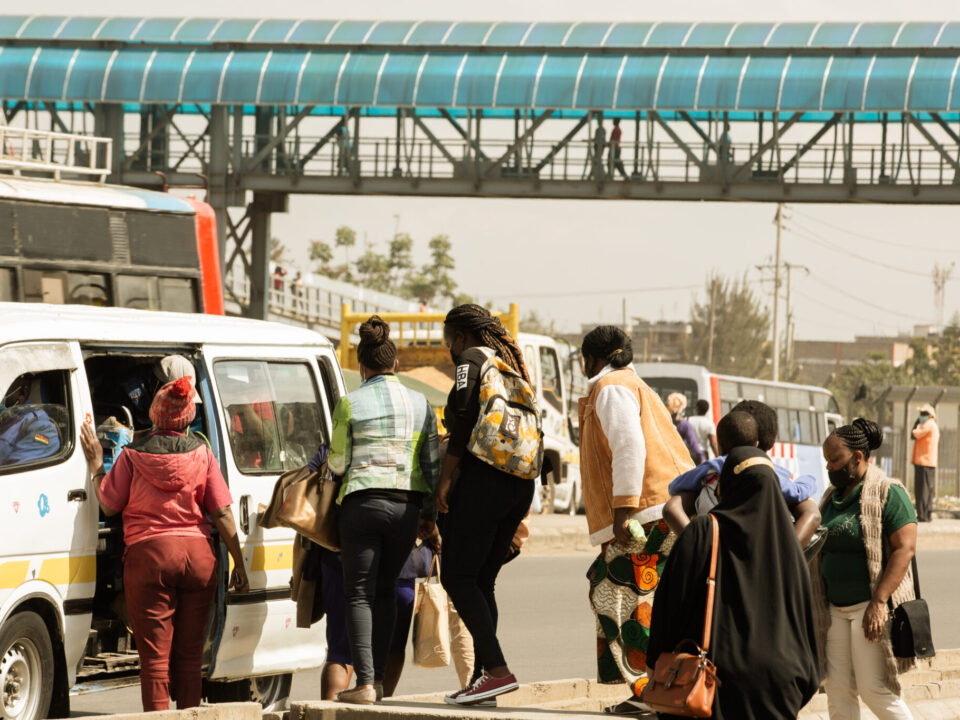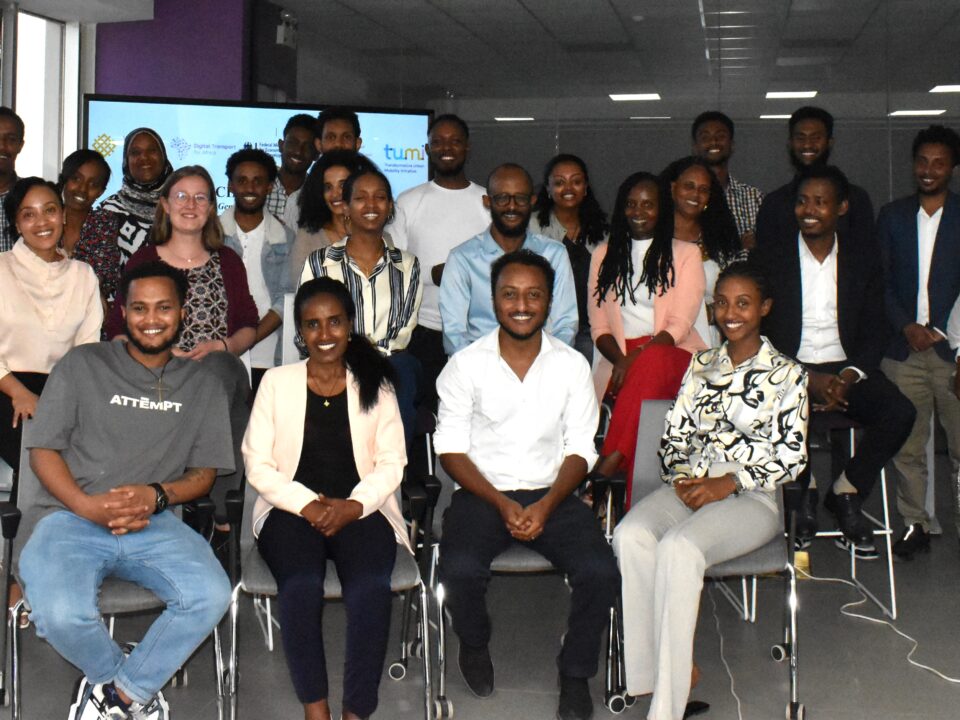
DigitalTransport4Africa Newsletter: June 2023
21 juin 2023
DigitalTransport4Africa Newsletter: June 2023
5 août 2023Minibus taxis, pictured above waiting at Bergzicht taxi rank, are the only functioning public transport system in Stellenbosch, South Africa. Photo: GoMetro
* Original version of this article is available here.
The minibus taxi (MBT) industry is the backbone of South Africa’s public transportation system with a fleet of approximately 250,000 vehicles, operated by thousands of providers, employing some 600,000 drivers. MBTs account for 80% of all journeys taken by taxi in the country. Yet despite its prominence, the industry has yet to see any major attempts at decarbonization.
The lack of progress on transitioning the MBT industry to electric vehicles (EVs) can be attributed to a number of factors, including its size and the number of owners. But lack of reliable data on MBTs is another important factor. Without accurate data, conducting feasibility studies on the EV transition, which could show owners the path forward, is a daunting task. This is further compounded by lack of government intervention and incentives, and lack of access to proper private sector funding.
To bridge this data gap, GoMetro collaborated with WRI’s Digital Transport for Africa (DT4A) initiative and the Municipality of Stellenbosch on a comprehensive data collection program from taxis operating to and from Bergzicht taxi rank. The program consisted of two main initiatives: installing onboard diagnostic devices for 50 MBTs for a period of 14 days to collect crucial insights on operational aspects such as range, dwell times, trip duration and frequency, and utilizing GoMetro’s mobile phone application, GoMetro Pro, to collect additional trip data including passenger counts and demographics.
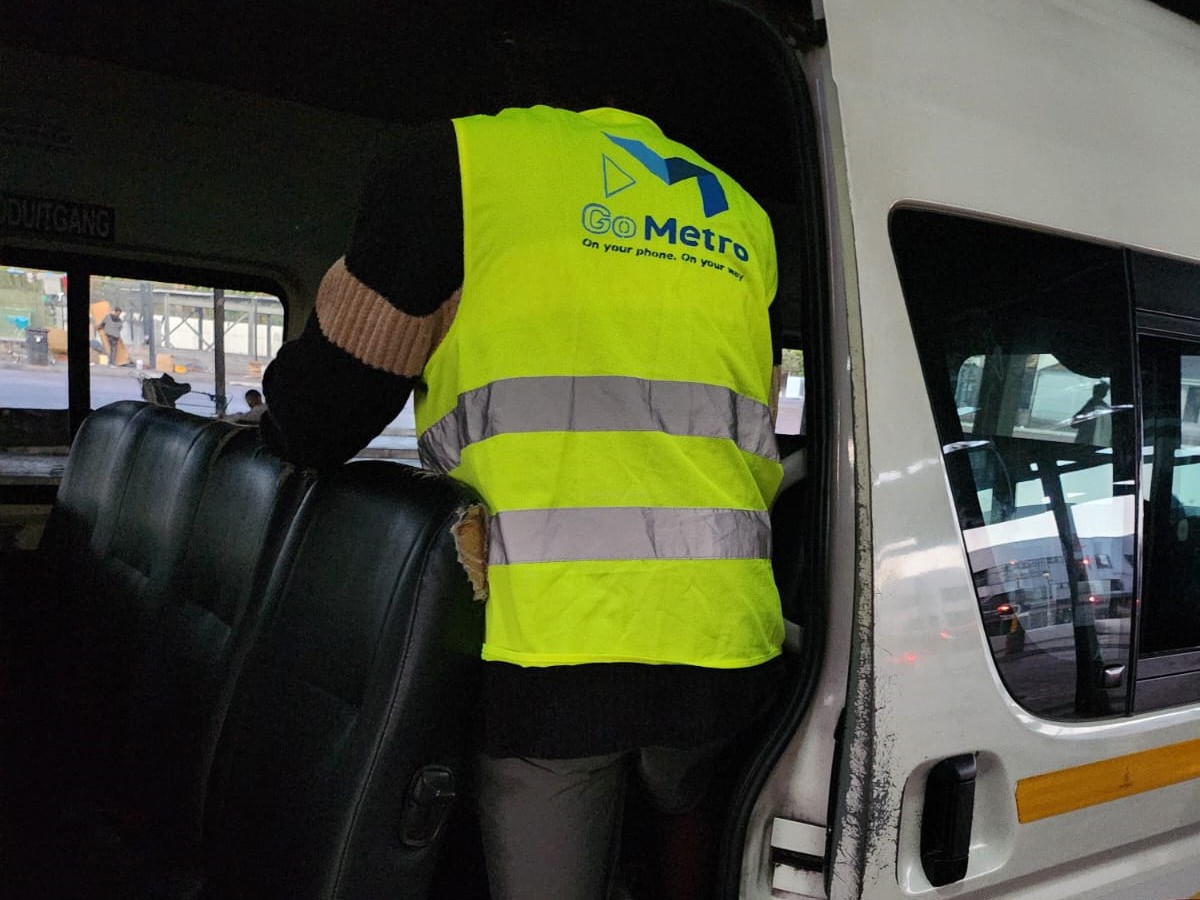 On-board data collection using GoMetro Pro, a mobile application designed for collecting data on informal paratransit systems in Africa. Photo: GoMetro
On-board data collection using GoMetro Pro, a mobile application designed for collecting data on informal paratransit systems in Africa. Photo: GoMetro
Assessing Feasibility
Overall, the study provided evidence that electric MBTs (e-MBTs) are not only feasible but could be highly beneficial for Stellenbosch. Data from the study indicates savings of up to $12,500 ZAR per month of fuel costs are possible as well as safer and more reliable transportation for women and children and improved health and wellbeing of commuters.
Specifically, we found that 86% of tracked MBTs could complete their daily operations on a single charge of an e-MBT. Overall, e-MBTs are compatible with 98% of all the trips undertaken. MBTs already spend an average of 1.5 hours stationary at a taxi rank consecutively, which is also sufficient charging time if charge-ups are needed. MBTs spend an average of 4.5 hours total at the Bergzicht taxi rank.
Typically, MBTs consume up to 20 liters of fuel per day, and each e-MBT has the potential to save 760,000 kg of CO2 emissions annually. Finally, 67% of MBT passengers surveyed were female, emphasizing the importance of decarbonizing this mode to improve health of women in Stellenbosch.
 With the support of WRI and DT4A, GoMetro collected valuable data on current MBT operations, providing insights into the feasibility of transitioning to e-MBTs. Photo: GoMetro
With the support of WRI and DT4A, GoMetro collected valuable data on current MBT operations, providing insights into the feasibility of transitioning to e-MBTs. Photo: GoMetro
Through this project, GoMetro and DT4A aim to pave the way for a more sustainable future in South African cities, and elsewhere such informal transport networks provide the bulk of service to residents. By harnessing the power of reliable data and exploring the feasibility of e-MBTs, we aspire to bring the EV revolution to paratransit systems around the world. Where the availability of data is scarcest, the public sector drive for decarbonization is lowest and the need to improve commuter health is vital.
Remaining Barriers
While the study’s findings were positive, the road to collecting accurate data was not without its challenges. The data collection process encountered several obstacles that required the GoMetro team to think on our feet and find appropriate solutions. Challenges included:
- Unwillingness of MBT operators to participate in data collection. Some MBT operators were initially hesitant to participate in due to their concern of GoMetro sharing data to regulators that would impose penalties on illegal operations. Overcoming this resistance required effective communication and building trust with the operators, highlighting the importance of their involvement in shaping a greener future.
- Coordinating onboard diagnostic installation and uninstallation. The installation and removal of the diagnostic devices posed logistical challenges. The team had to carefully coordinate with MBT operators to ensure seamless installation and timely retrieval of the devices while minimizing disruption to their operations.
- False information and cancellations. We encountered instances where false information was provided or MBT operators canceled their participation after starting the program. Dealing with these unforeseen circumstances demanded adaptability, prompt communication and quick problem-solving to maintain the integrity of the data collection process.
South Africa’s First E-MBT
Looking ahead, GoMetro, along with a research consortium that includes Mix Telematixs, HSW, Stellenbosch University and ACDC Dynamics, has secured funding to import South Africa’s first e-MBT.
 E-MBTs are not only feasible but highly beneficial for Stellenbosch. Data from the study indicates savings of up to $12,500 ZAR per month of fuel costs. Photo: GoMetro
E-MBTs are not only feasible but highly beneficial for Stellenbosch. Data from the study indicates savings of up to $12,500 ZAR per month of fuel costs. Photo: GoMetro
Furthermore, GoMetro secured funding to develop South Africa’s first public e-MBT charging facility in the Bergzicht taxi rank. The insightful data collected in this program enabled us to craft a charging facility design that caters to the needs of MBT operations. The design has been submitted to the Stellenbosch Municipality and is currently awaiting council approval. If all goes as planned, the facility is anticipated to be fully operational by the beginning of 2024.
With the support of WRI and DT4A, GoMetro was able to collect valuable data on MBT operations, providing insights into the feasibility of transitioning to e-MBTs and other vehicles like them. This type of localized data collection and market analysis is a vital first step in decarbonizing an industry that is so important to millions of riders around the world.
* Original version of this article is available here.
About the Authors
Rudi Kriel is Transport Economist for GoMetro.
Mariska Burger is Chief Marketing Officer for GoMetro.
